It’s often said that great cinema is challenging, that great cinema violently rocks your deepest beliefs and tackles your preconceptions of the world. But the problem with that statement is that it overlooks the genius films that don’t do any of those things, the ones that feel more like a hug than a whack to the head.
As we enter the billionth week of January, we have been looking to our favourite comfort films for, well, some comfort in these cold, sunless times. Whether it’s in the form of big belly laughs, implausible romance, or happy tears, these films have offered solace to millions time and time again. If that’s not great cinema, I don’t know what is.
The Independent has compiled a list of the 20 best feelgood films, from sentimental classics like It’s a Wonderful Life to laugh-out-loud riots such as Some Like It Hot and Legally Blonde. There may be a few surprises in there (who knew a BDSM film could be so sweet?), but rest assured: by the time the credits roll on any of these films, you’ll feel a little better about life.
20. Secretary (2002)
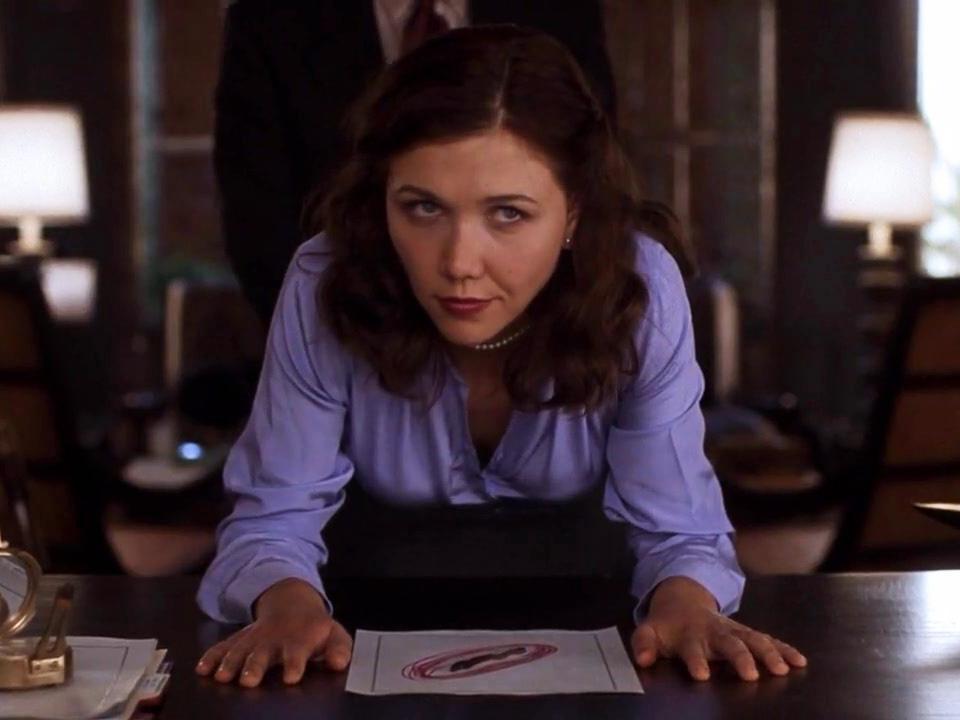
Not all feelgood films have to be amorphous clouds of marshmallow fluff – and Steven Shainberg’s kinky romcom may not be the first movie that springs to mind when you think comfort watch (for one thing its protagonist, an assistant played by Maggie Gyllenhaal, self-harms using a sewing kit) but its happy, albeit unconventional, ending never fails to leave me feeling uplifted. James Spader is charming and endearing in his role while Gyllenhaal is wide-eyed. Both are quietly passionate, culminating in a love story for the ages. It’s a BDSM film with a bigger heart than most dramas. Annabel Nugent
19. Dick (1999)
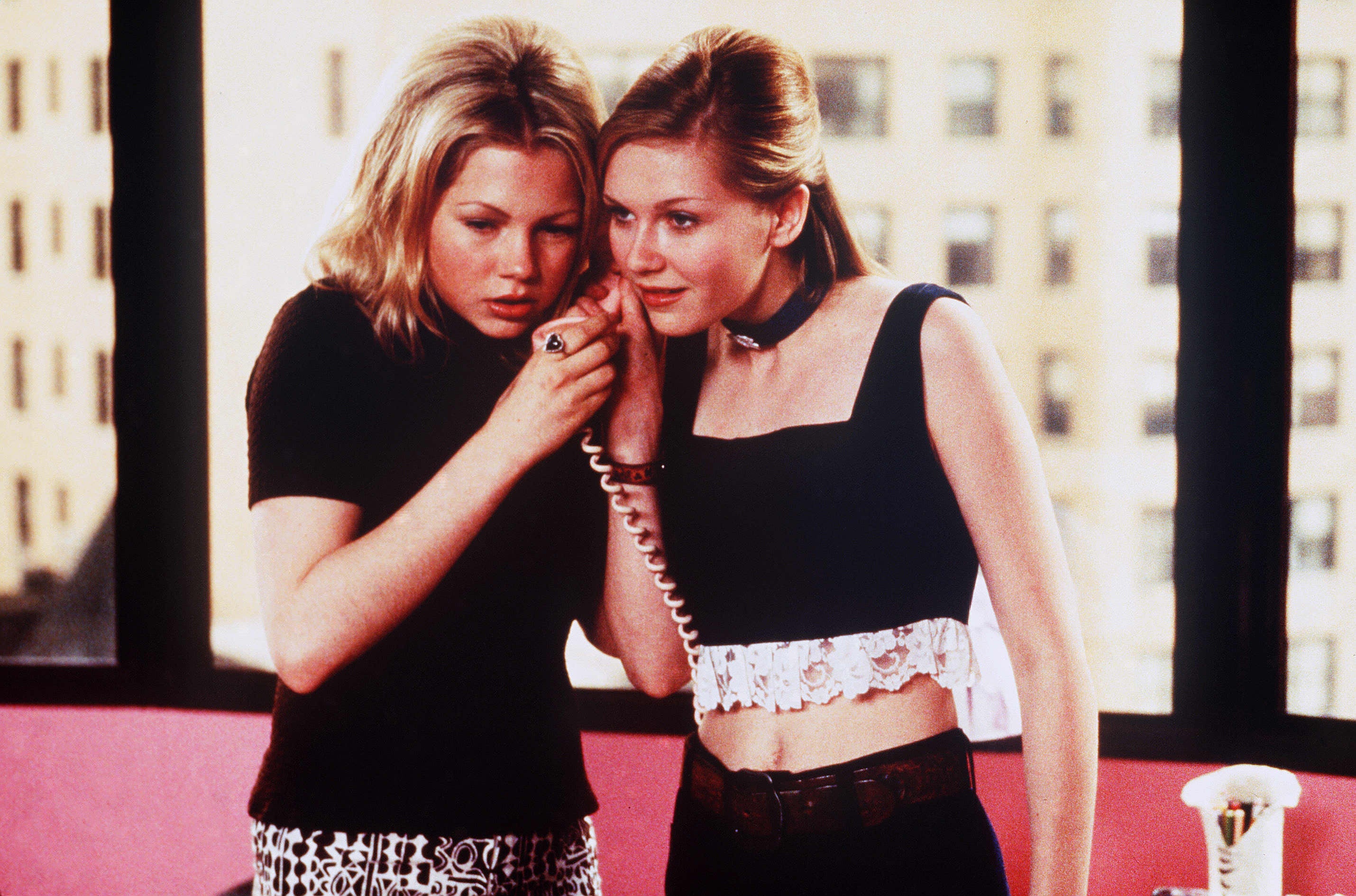
The funniest movie ever made about teenage girls with crushes on Richard Nixon, the cult comedy Dick crashed and burned at the box office in 1999, but ended up fulfilling its rightful destiny: to be a film stumbled upon late at night on BBC One, or on one of the dustier shelves in Blockbuster. Kirsten Dunst and Michelle Williams play Sixties high schoolers who accidentally uncover Watergate during a White House tour. Woodward and Bernstein, in this version of events, merely cribbed their hard work. Glorious! Adam White
18. Moonstruck (1987)
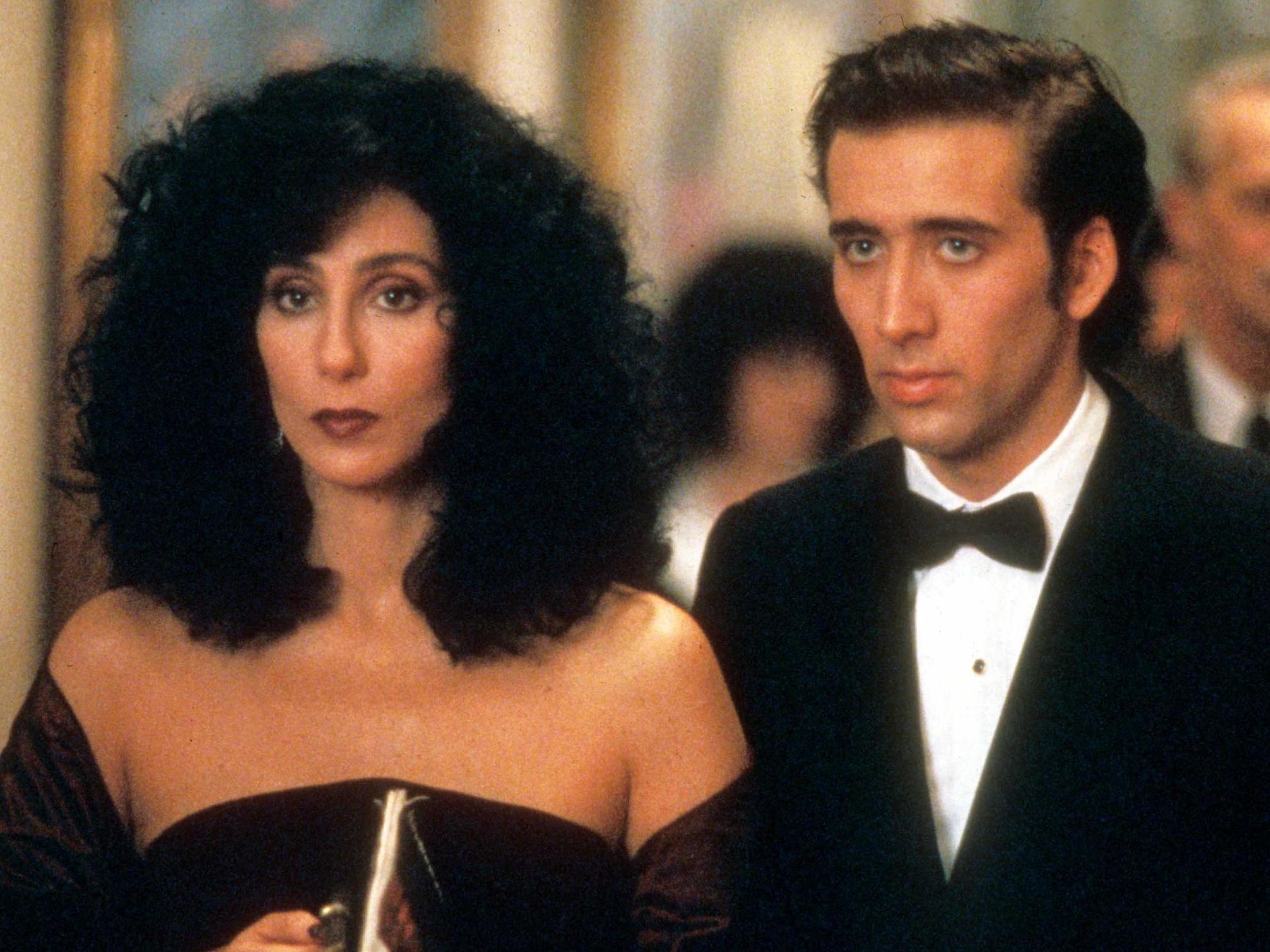
A gentle, life-affirming romantic comedy about a lonely, dowdy bookkeeper who transforms into the dazzling Cher we know and love solely through the power of Nicolas Cage’s chest hair. It’s a tale as old as time. Cher won an Oscar for her work here – for her performance, of course, which is funny, sensitive and sharp, but also for the joyous glamour with which she kicks an empty tin of food down a Brooklyn sidewalk. AW
17. How to Lose a Guy in 10 Days (2003)

For many people romcoms exist purely for when the doctor (you) writes the patient (also you) an urgent prescription for something comforting. In the pantheon of the genre, there’s little better than How to Lose a Guy in 10 Days. The effervescent Kate Hudson and irresistible Matthew McConaughey lead this romcom, which follows a lighthearted storyline that sees Hudson’s character, who works at a women’s mag – obviously, because this is the Noughties – trying to shake off her fake beau and then write about it. It’s the perfect battle of the sexes that ends up escalating and de-escalating into true love. Hannah Ewens
16. Toy Story 2 (1999)
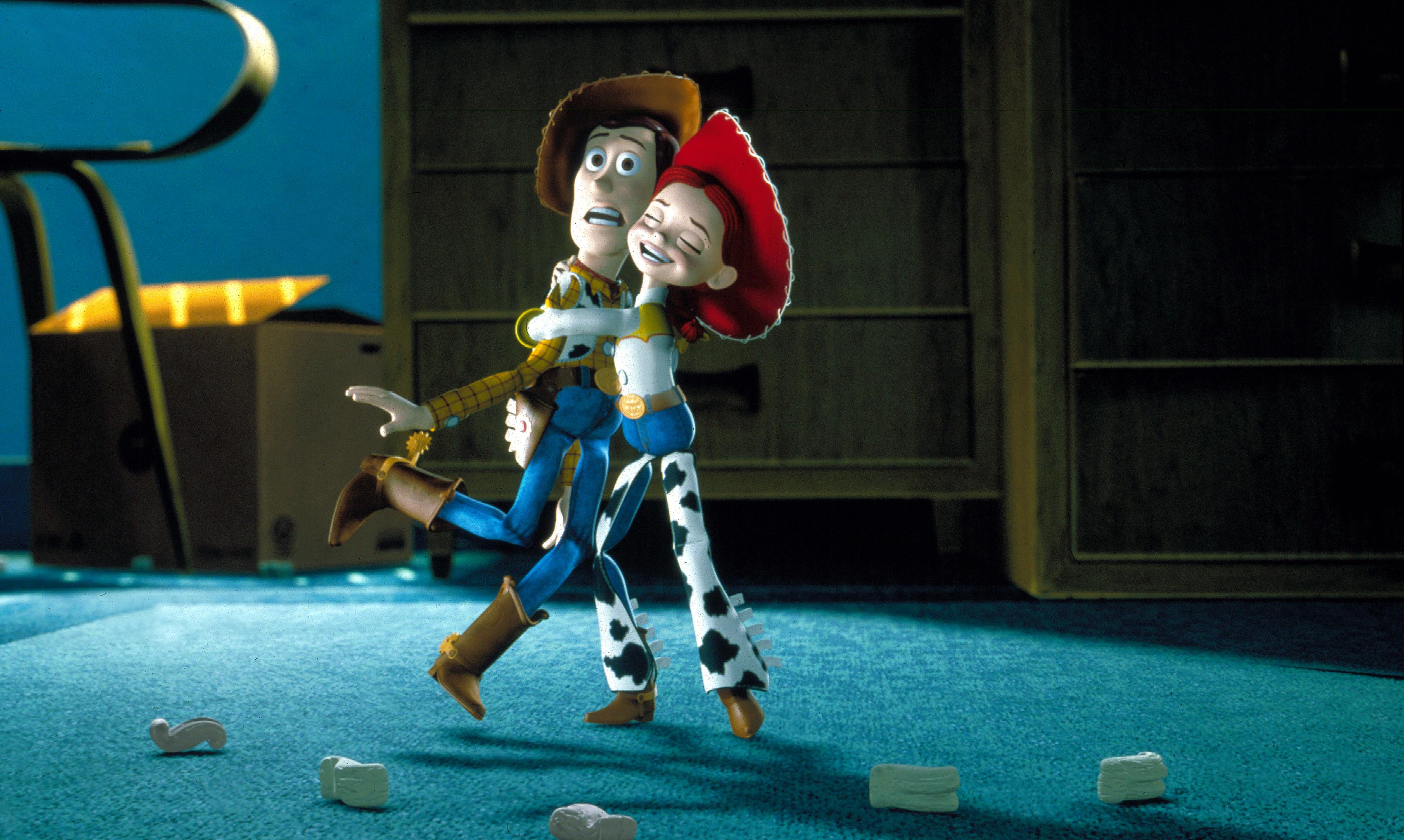
It’s a story about some lonely toys, right? While admittedly true, that summary feels reductive when you consider how these characters transcend being just toys. It’s rare for a sequel to outshine the original, but Pixar pulled it off with Toy Story 2. The film introduced gorgeous new characters, particularly the cowgirl Jessie, and added a romantic storyline. Its central theme of children growing up is explored in a way that’s both joyful and bittersweet. The animation is elevated, and remarkably, it hasn’t aged a bit. Toy Story 2 is likely to remain a comfort blanket for audiences, forever. HE
15. Romy and Michele’s High School Reunion (1997)
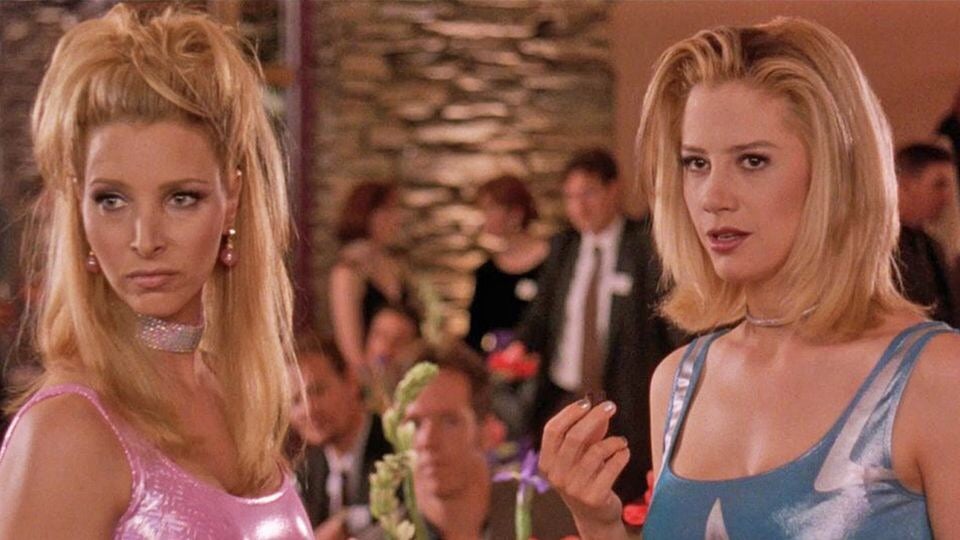
Mira Sorvino and Lisa Kudrow play best friends who only have eyes for each other, yet become panicked at the prospect of attending their 10-year school reunion without boyfriends or glitzy jobs. Janeane Garofalo co-stars as a chain-smoking grump, with Alan Cumming making an appearance as a randy nerd turned billionaire tech CEO. Post-its are invented, surrealist visions are had, No Doubt pumps on the soundtrack. What a riot, and – despite nearly 30 years of low-key adoration – it’s still a movie that feels underappreciated. AW
14. Sing Street (2016)
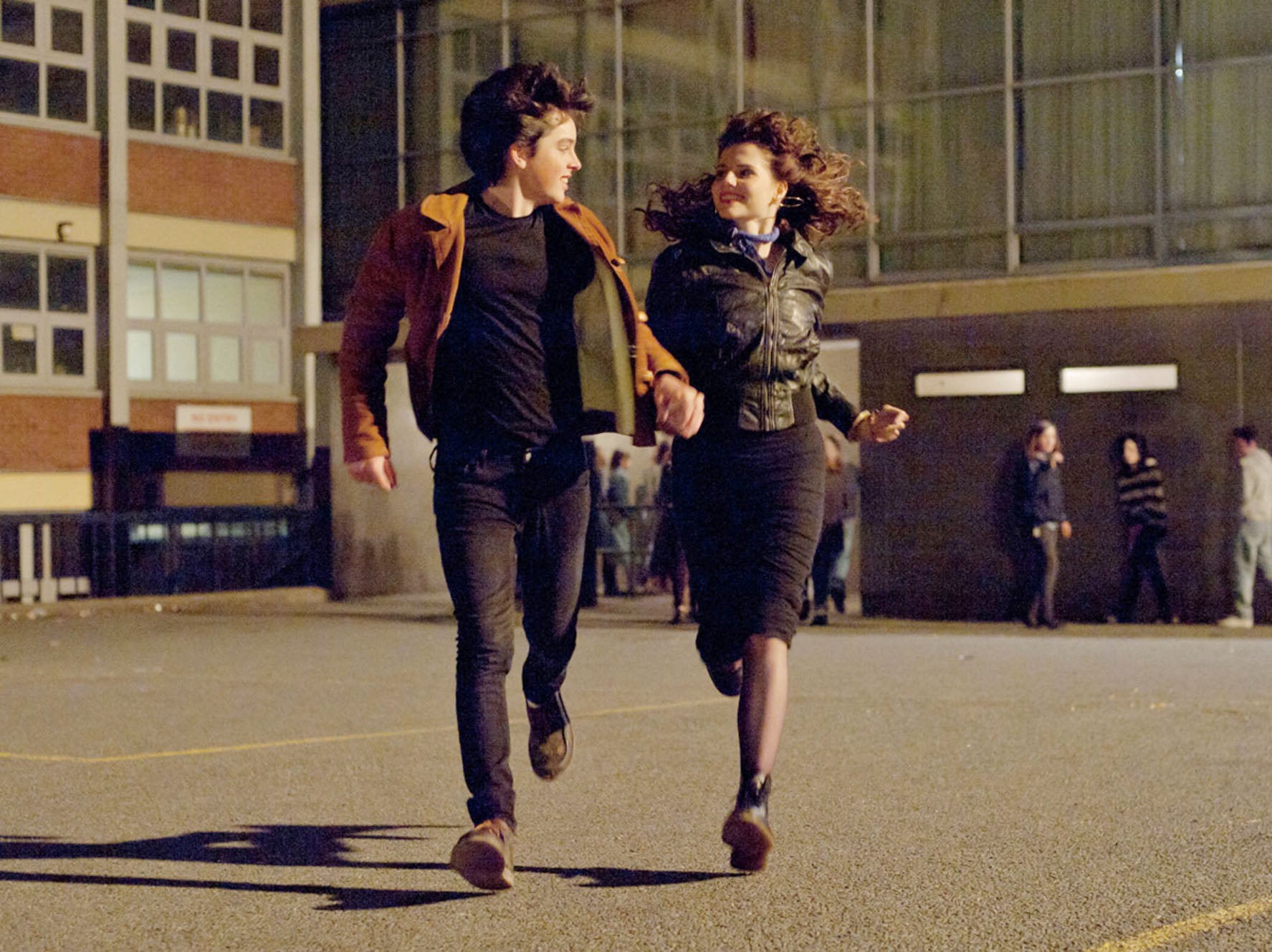
One of the best rock musicals in recent years, Sing Street follows a teenage boy (an excellent Ferdia Walsh-Peelo) in 1985 who starts a New Wave band to impress aspiring model Raphina (Lucy Boynton). In Geoffrey Macnab’s original review in The Independent, he wrote that Sing Street “offers a moving and very funny account of a germ-filled adolescence in the post-punk era”. The film has charm in spades, and – crucially for any musical – the songs aren’t half bad either. Louis Chilton
13. The Straight Story (1999)
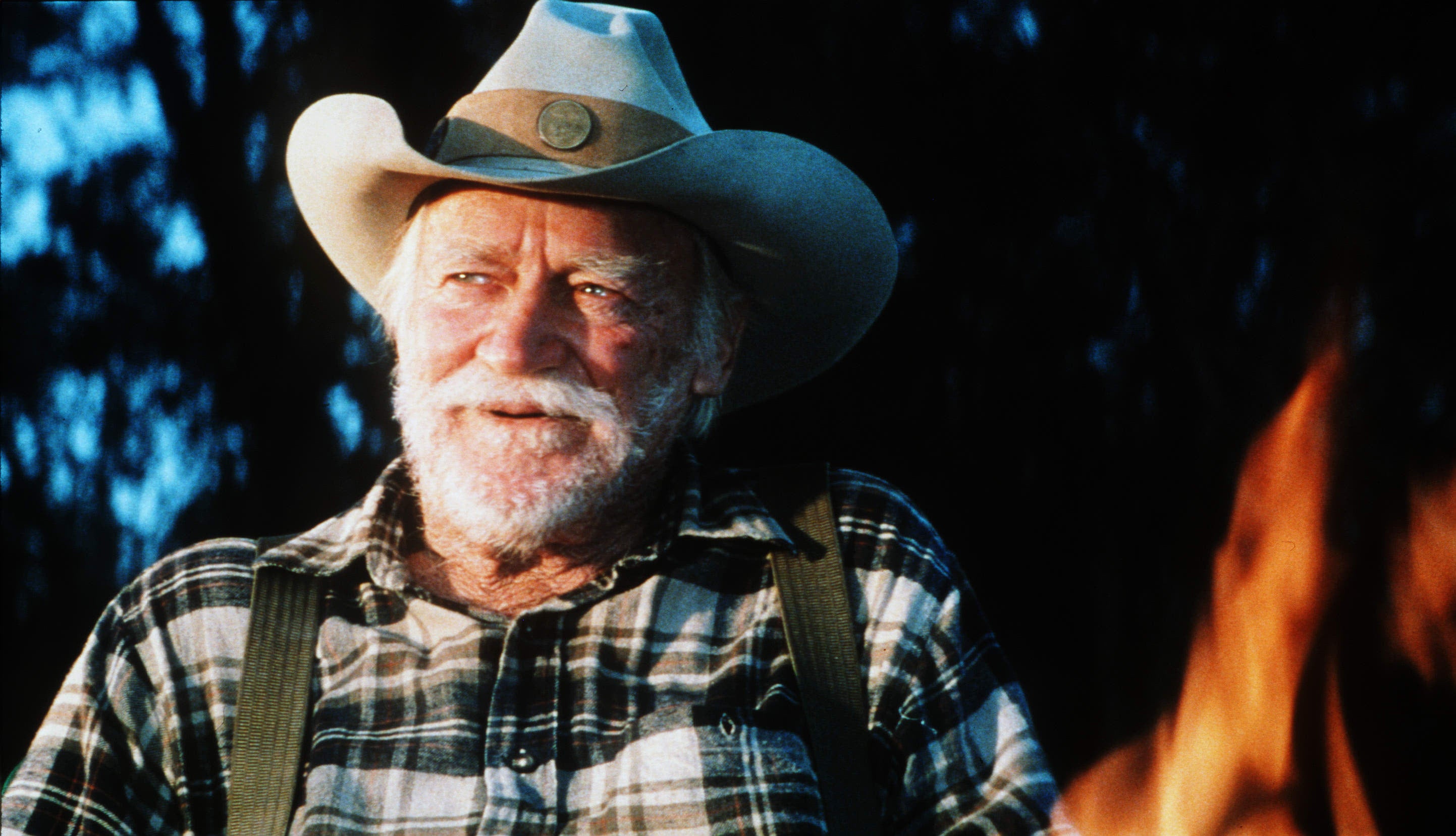
The Straight Story is best remembered as the time David Lynch – the late maverick director celebrated for surrealist films that probe the darkest corners of the human psyche – made a Disney movie. Based on a true story from 1994, it tells the tale of a cantankerous Second World War veteran (played by an Oscar-nominated Richard Farnsworth) who rode a lawnmower 300 miles across the Midwest of America to visit his ailing brother (Harry Dean Stanton). Written by Mary Sweeney – Lynch’s longtime editor, producer, and then-partner – the screenplay is sparing and precise, finding a quiet beauty in the mundane. That this simple paean to middle America followed Lynch’s nightmarish neo-noir Lost Highway renders it all the more surprising. A heart-swelling, spiritually profound delight of a film. Patrick Smith
12. School of Rock (2003)

Every time I need something neutral to wash away the emotional detritus of my life, I return to School of Rock. Is it a kid’s film? For adults? A comedy? A musical that actually has good songs? In fact, it is essentially a smart and heartwarming blend of all those things, while being, simply put, kinda silly. It is also Jack Black’s best movie, in which he plays arch-idiot Dewey, a rocker with Peter Pan syndrome who conjures up a get-rich-quick scheme by lying his way into a prestigious primary school as a substitute music teacher. Unknown to most, School of Rock is also directed by Richard Linklater, so it has that magic feeling of time passing and people growing. Rock on, dudes. HE
11. Breakfast at Tiffany’s (1961)
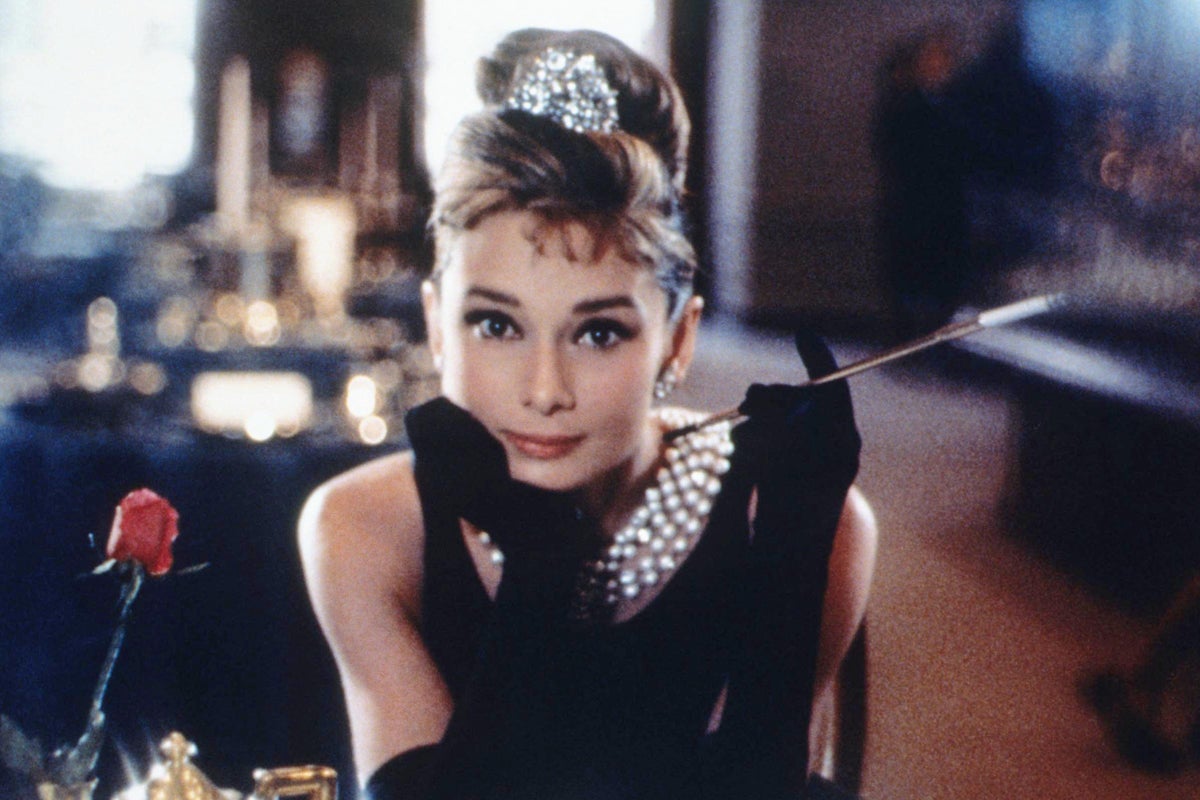
What is it about the films of the Fifties and Sixties that make them capable of curing even the bluest blues? My favourite, a safety-watch for when I don’t want anything too emotional or alarming, is Breakfast at Tiffany’s. Everything looks beautiful: the cocktail dresses, the diamonds, the Manhattan apartments with all their chic furnishings. And then there’s the love story that’s really just a side-quest to the wider adventures of Holly Golightly, played by Audrey Hepburn. How can you not feel soothed by her devil-may-care attitude towards the world? Nothing matters too much and life is a game. HE
10. Legally Blonde (2001)
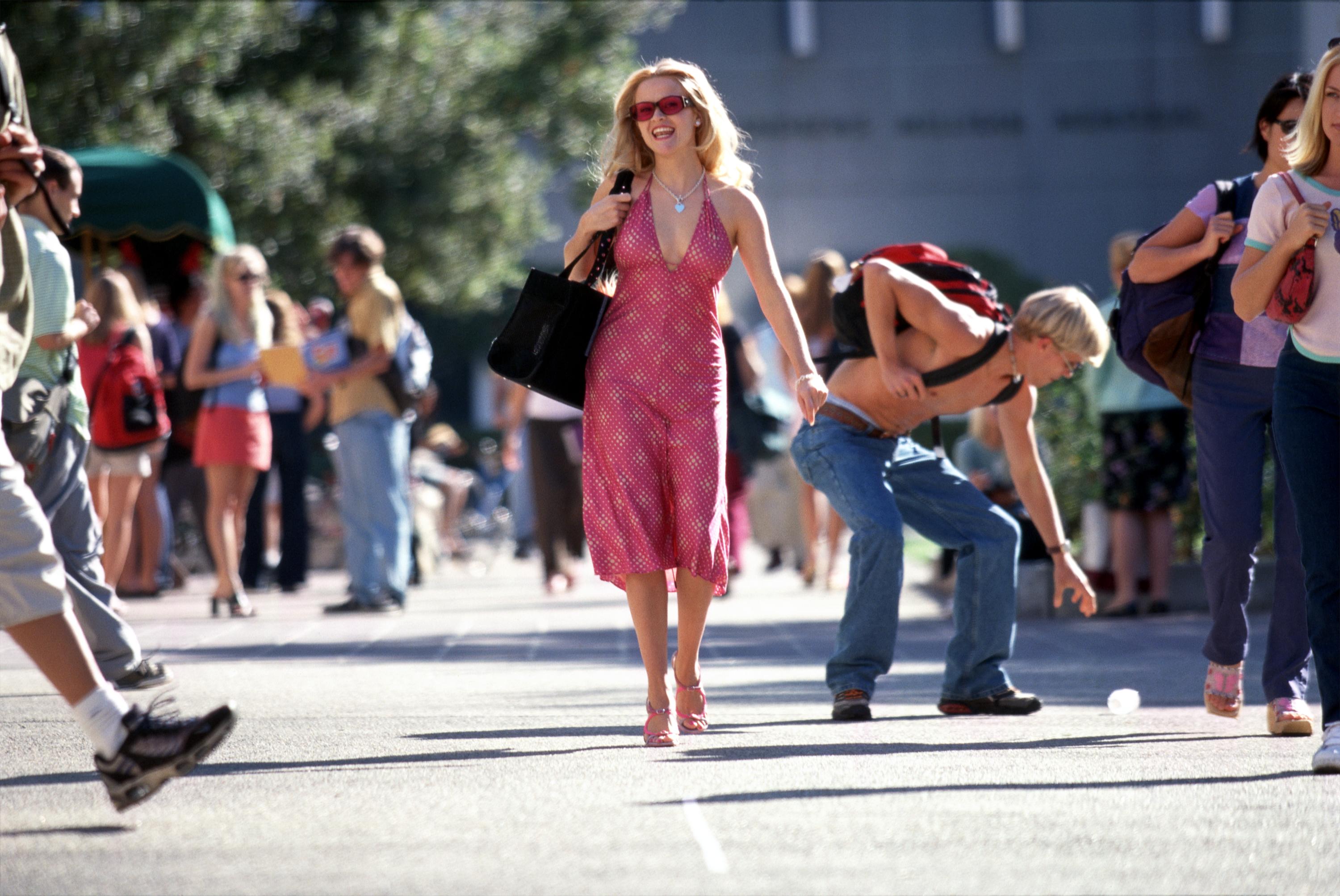
Ground zero for every perky millennial who briefly pondered becoming a lawyer, this sunny empowerment comedy warrants more love for just being incredibly funny than it does for being something of a proto-#girlboss staple. Reese Witherspoon’s Beverly Hills sorority girl enrols in law school to win back her princely boyfriend, only to find herself in the process. There are quotable lines a-plenty, a cute dog, and a raft of memorable supporting characters to its name: Jennifer Coolidge’s dim-bulb bestie, yes, but also Ali Larter’s fitness-guru-on-a-murder-charge, and a hideously wigged Linda Cardellini. AW
9. Some Like It Hot (1959)

Two male musicians must pretend to be members of an all-girl band to flee Chicago after witnessing a mob hit. In the process, and still in girlish disguise, they compete for the affections of their new bombshell bandmate played by Marilyn Monroe. It’s a premise that might’ve worn thin in anyone’s hands other than the masterful Billy Wilder. Tony Curtis and Jack Lemmon are outrageously funny, taking to the script’s slapstick elements like ducks to water, while Monroe is pure star power in a mad-cap romp that has no business still being as funny as it is. AN
8. My Cousin Vinny (1992)

Joe Pesci is admittedly indelible as the short-tempered and short wiseguy of Martin Scorsese’s gangster flicks, but it’s a crime how few people talk about his comedic turn in My Cousin Vinny. In it, he is equally brilliant as a scrappy personal injury lawyer from New York who finds himself at the centre of an Alabama murder trial. It’s a classic culture-clash comedy: “I bet the Chinese food here is terrible,” spits Marisa Tomei upon arriving in the Southern state in their glossy Cadillac convertible. Tomei is excellent and Oscar-winning as Vinny’s long-suffering, foot-stomping paramour Mona Lisa Vito. She and Pesci ground the film, transforming their roles from broad caricatures into empathetic, fleshed-out characters to root for. AN
7. Our Little Sister (2015)
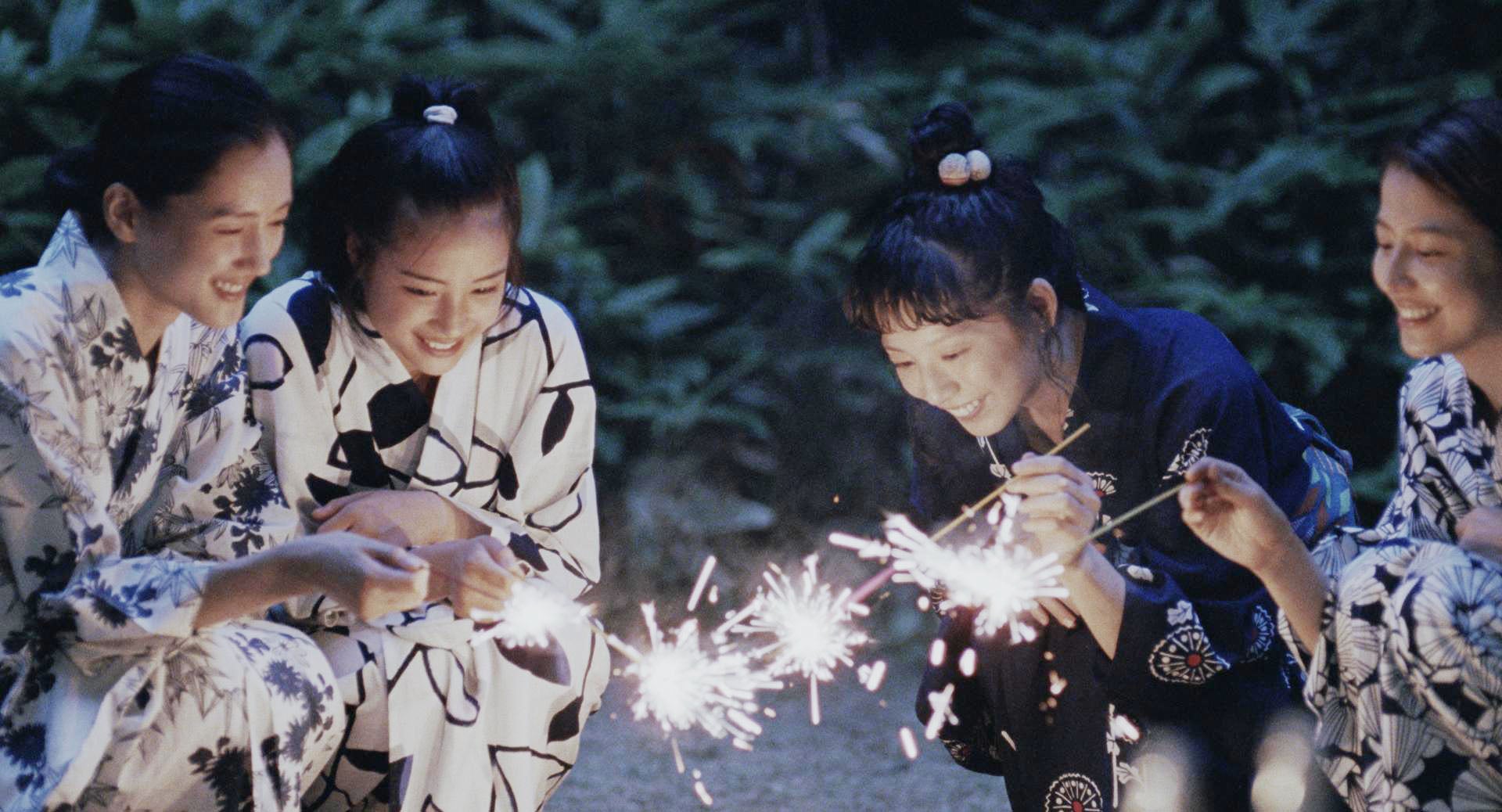
The wonderfully humanistic Japanese filmmaker Hirokazu Kore-eda has always had a sentimental streak; often, this manifests as a sort of bittersweet melancholy (as in Shoplifters or After the Storm) rather than something straightforwardly feelgood. His 2015 drama Our Little Sister, however, is the exception; it may very well be his most uplifting film, a delicately sweet tale of three twentysomething sisters who grow acquainted with their younger half-sibling after the death of their estranged father. LC
6. Sullivan’s Travels (1941)
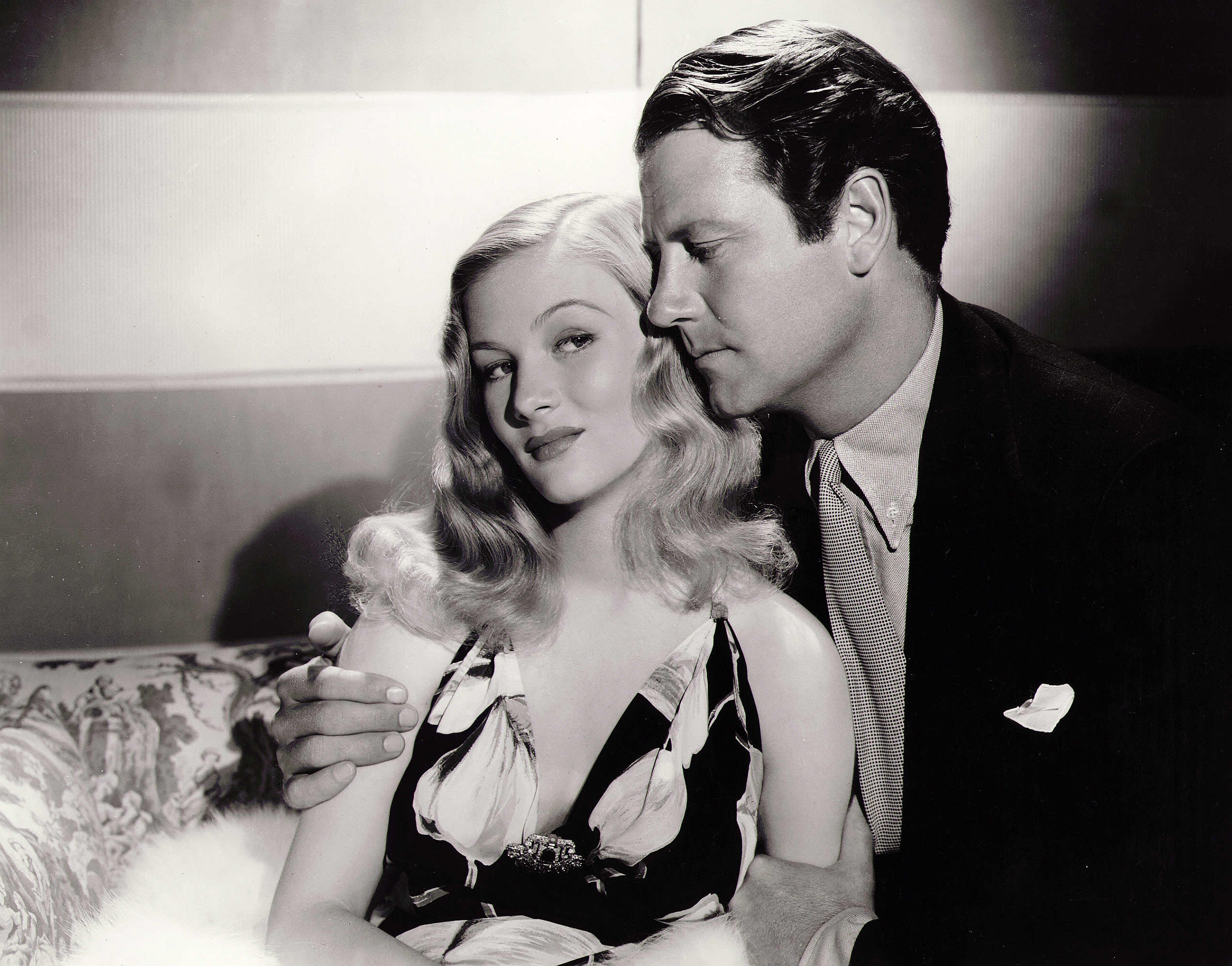
It’s an age-old tale in show business: an artist known for making frivolous, accessible entertainment yearns to “break bad”, creatively speaking. In Sullivan’s Travels, this artist is filmmaker John Sullivan (Joel McCrea), a master of lucrative comedies who wants to make a gritty, true-to-life drama about American poverty. Funny, incisive and filmed with panache by director Preston Sturges, Sullivan’s Travels is a classic for good reason. (The title for Sullivan’s proposed “serious” film is “O Brother, Where Art Thou?” – a name later pilfered by the Coen brothers for their own dust-bowl odyssey, incidentally another feelgood film to rival the best of ‘em.) LC
5. Amelie (2001)
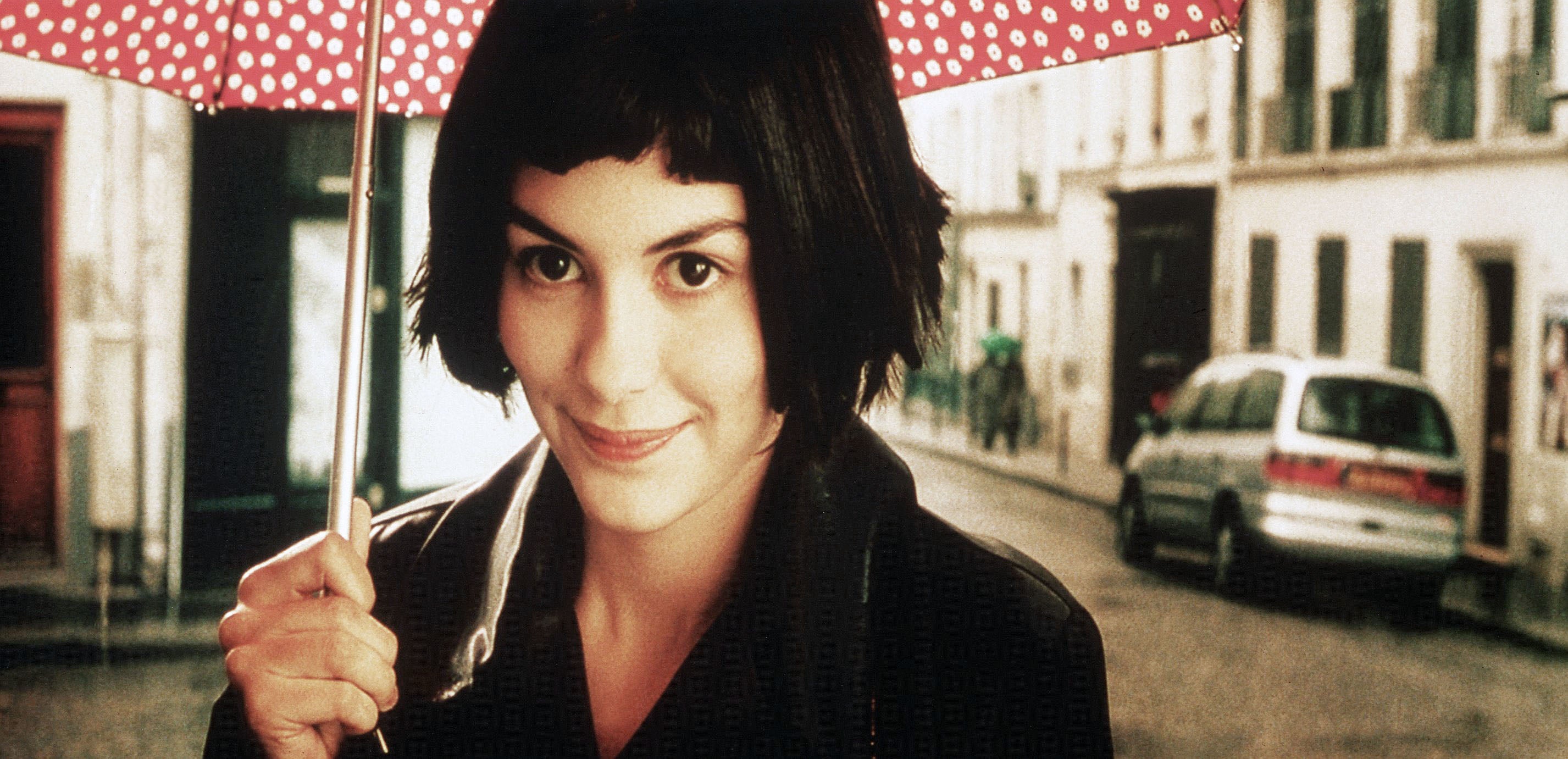
A film that, for some time, became a byword for French cinema among the general population, Amelie is every bit as sugary and twee as its detractors say it is. But Amelie, starring Audrey Tautou as a lonely and introverted waitress, is also a delight. Tautou is charming and specific in the lead role, while the film itself is lively and inventive. The late, great film critic Roger Ebert described Amelie as “a delicious pastry of a movie… You see it, and later when you think about it, you smile.” He is not wrong. LC
4. Spirited Away (2001)
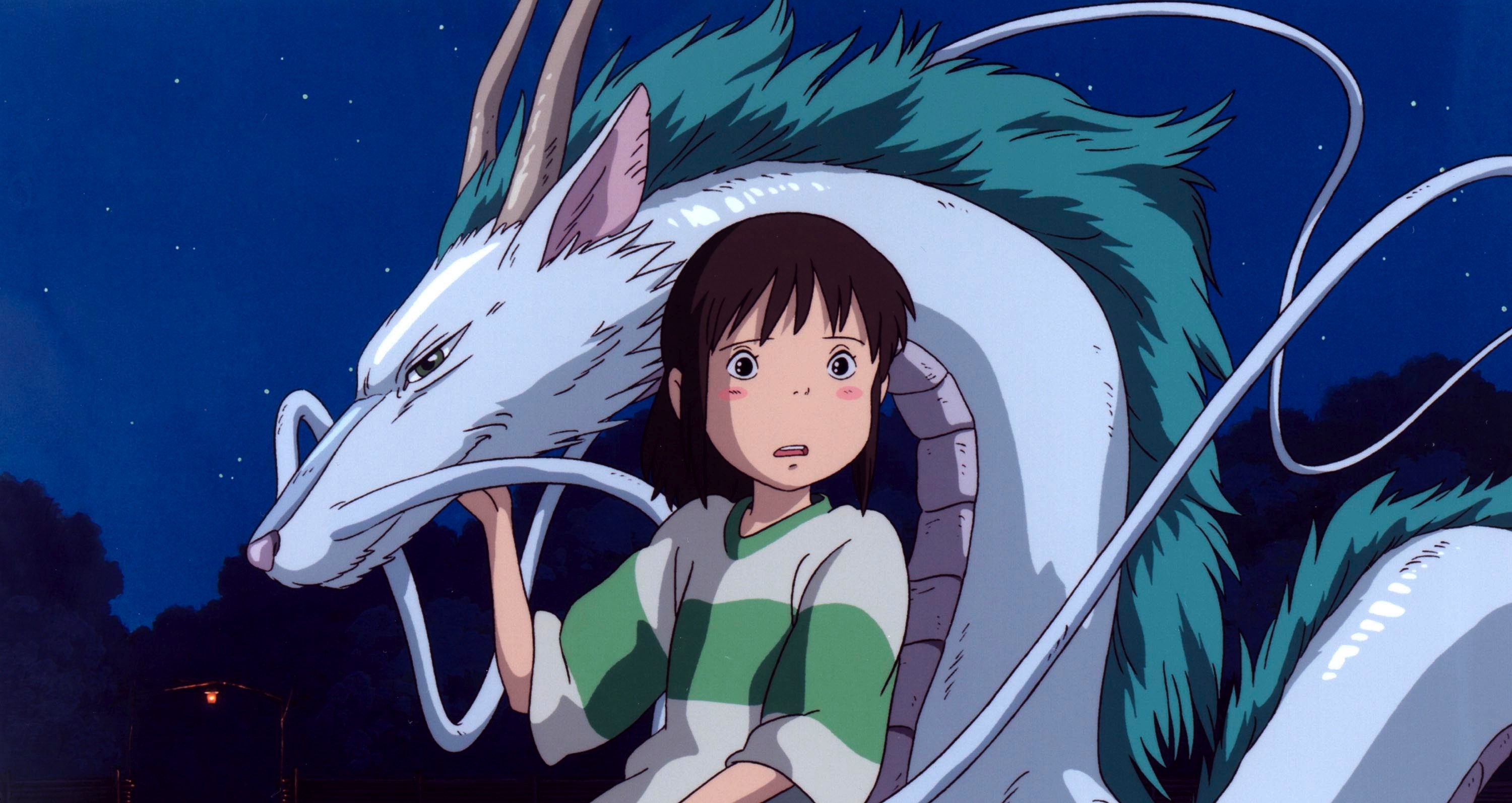
It’s easily the most obvious of Hayao Miyazaki’s films to profess your love for, primarily because it had the widest release at the time. A Pixar animator and fan of Miyazaki, who was also a friend of his, convinced Disney to buy the North American distribution rights to Spirited Away – and thank goodness for that, because his co-sign meant that entire generations were introduced to the fantastical world of Studio Ghibli. The story follows Chihiro, who is swept away to another world along with her mum and dad, leaving Chihiro to save them (spoiler: her parents are too busy eating and rolling in mud to realise what’s happening). The film is exquisitely crafted, offering a narrative that’s more subtle than a Disney movie and more spiritually infused than a Pixar one. Spirited Away leaves you with a dreamy sense that there’s more to the world than meets the eye. HE
3. Addams Family Values (1993)
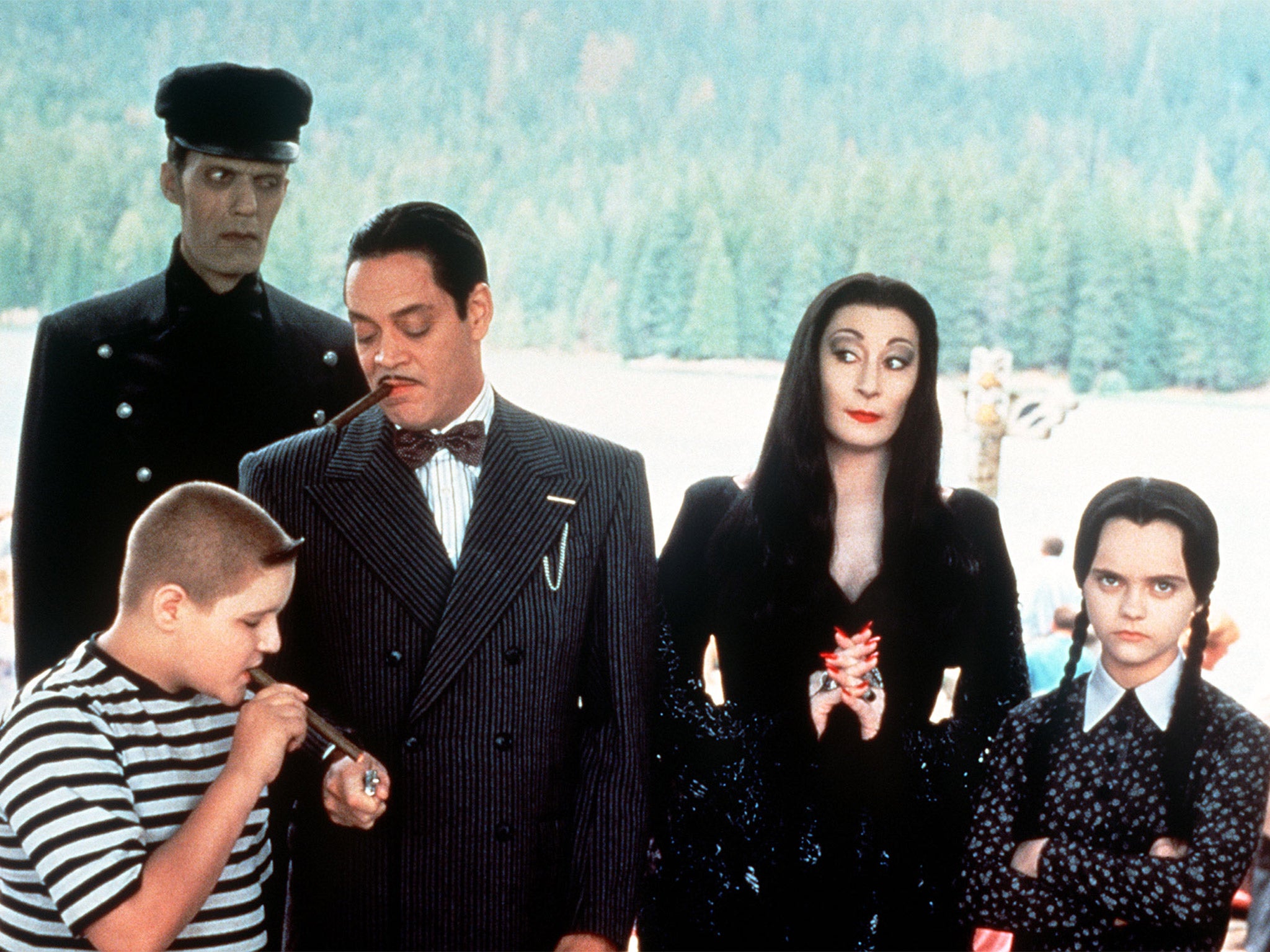
The fact most people wait until Halloween to rewatch Addams Family Values is a crying shame. There are, in fact, 364 other perfectly good days in the year to enjoy this comedic masterpiece, which sees the return of everyone’s favourite macabre household, plus new addition baby Pubert. Paul Rudnick’s script is brilliant and biting, leaning into the brattish humour of Christina Ricci’s Wednesday while retaining the hilarious one-liners of the first movie (“I hope that someday you’ll know the indescribable joy of having children, and of paying someone else to raise them” is a favourite of mine.) The performances are, as always, excellent. The late, great Raul Julia and Anjelica Huston are incomparable as Gomez and Morticia – while Joan Cusack is delicious as a gold-digging femme fatale after Uncle Fester’s money. AN
2. What’s Up, Doc? (1972)
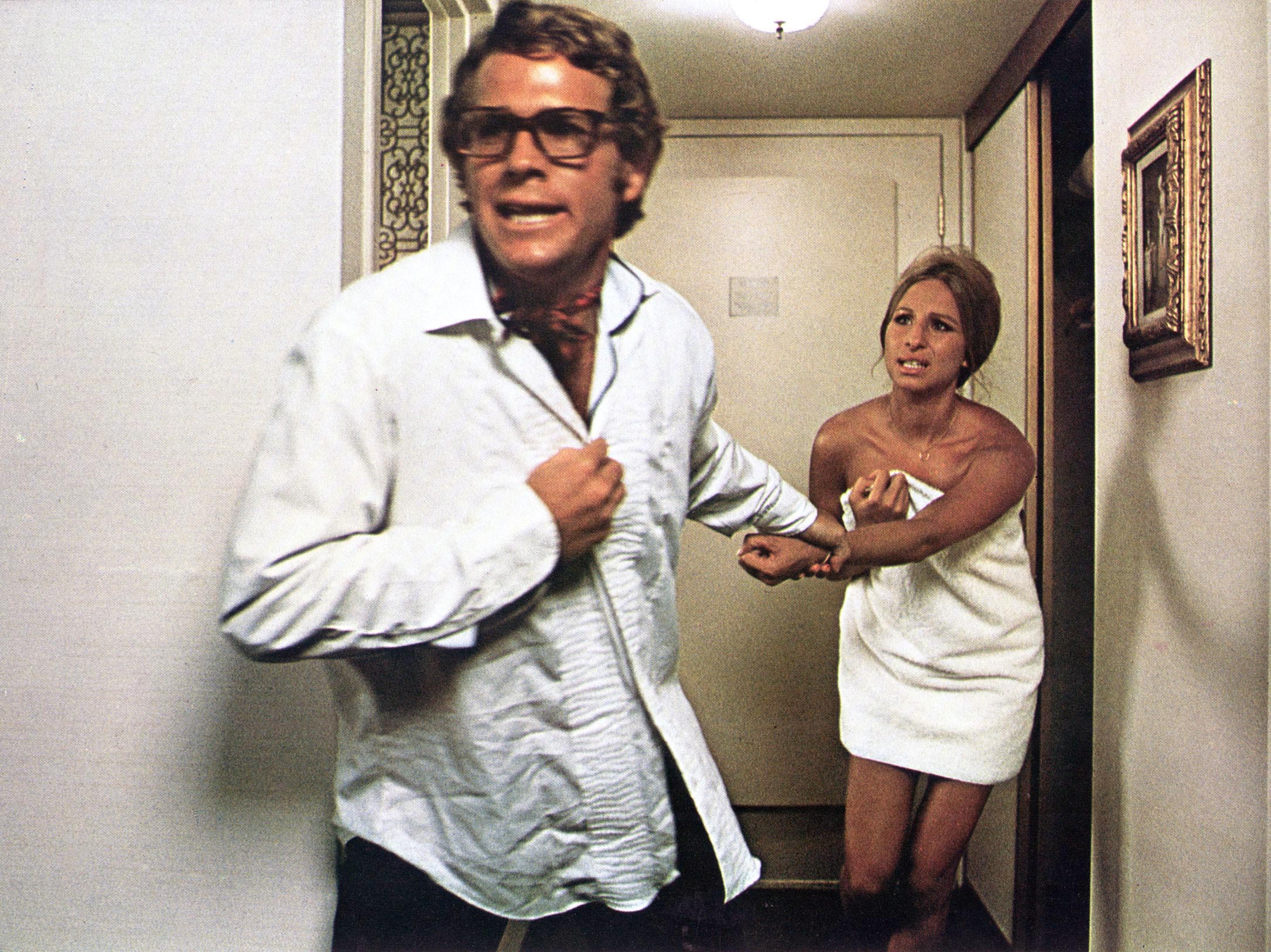
Barbra Streisand and Ryan O’Neal unlock heretofore undiscovered levels of sex appeal in this screwball comedy about a pair of mismatched strangers on the run. As for its legacy, What’s Up, Doc? basically invented a particular type of chaotic romcom: characters dangle off balconies, race down San Francisco streets, dodge crooks and wrong ’uns, and fall in love. This is loud, breathless filmmaking – an instant mood-lift. AW
1. It’s a Wonderful Life (1946)

Even now, more than 60 years after his death, Frank Capra remains cinema’s de facto king of the feelgood movie, and probably half a dozen of his movies – from Mr Smith Goes to Washington, to It Happened One Night, to Meet John Doe – would fit right in on this list. But his crowning achievement, the Christmastime staple It’s a Wonderful Life, is a shoo-in. The tale of George Bailey (James Stewart) – a paragon of human good who is saved from suicide and shown, by an avuncular angel, what the world would look like if he had never existed – is sweeping, romantic, and impressively dark in places. Ultimately, though, his story leaves you feeling uplifted. It’s a Wonderful Life is a film to restore faith in humankind, a movie that yanks at your heartstrings with a harpist’s precision and the force of a tow-truck. Hot dog! LC







